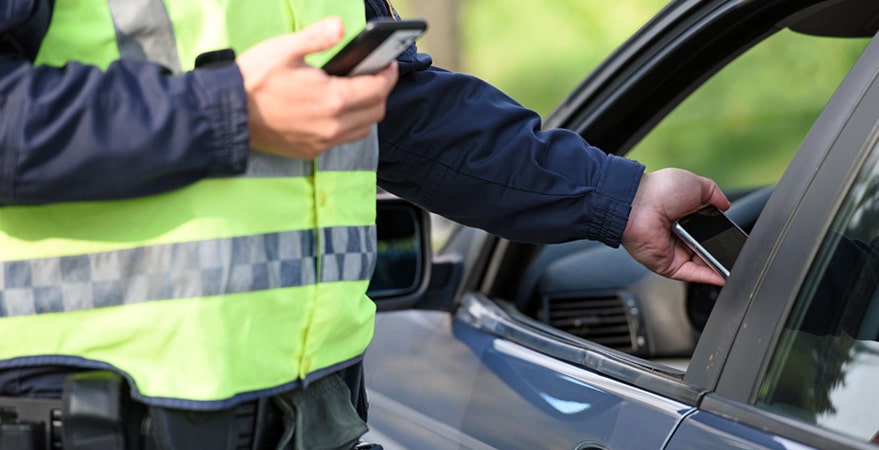Vehicular Manslaughter vs. Vehicular Homicide

You may know the terms “vehicular manslaughter” and “vehicular homicide,” but be unsure of their exact meaning and what it takes to be convicted of these charges. You might also wonder if there are any distinctions between the two terms. In Colorado, they are used interchangeably and refer to accidentally causing someone’s death while driving recklessly or under the influence. However, the term most commonly used for these situations is vehicular manslaughter.
Vehicular manslaughter terminology was introduced to hold drivers accountable for their actions leading to someone’s unintentional death, resulting from reckless driving choices. However, the penalties imposed align with those for an auto accident, rather than the more severe penalties for a manslaughter offense.
Drunk Driving and Vehicular Manslaughter
Drunk driving plays a significant role in cases of vehicular manslaughter, a serious criminal offense. Vehicular manslaughter occurs when someone causes the death of another person while operating a motor vehicle negligently or recklessly. It is important to differentiate this offense from vehicular homicide, which involves intentionally using a motor vehicle to kill another person.
When someone dies as a result of drunk driving, the driver can face charges of vehicular manslaughter. Different jurisdictions have varying penalties for this crime, often considering it a felony with severe consequences. The specific punishment depends on the circumstances of the case and the jurisdiction, but it usually involves significant prison time.
Those accused of vehicular manslaughter may attempt to defend themselves by challenging the presented evidence or arguing that their actions were not criminally negligent. Common defenses include lack of intent, involuntary intoxication, or mechanical failure.
It is worth noting that while drunk driving is commonly associated with vehicular manslaughter cases, it can also lead to charges of vehicular homicide if there is evidence of intentional killing. Both offenses carry serious legal implications and demonstrate society’s commitment to holding individuals responsible for their actions when they operate vehicles under the influence.
Understanding Punishment for Vehicular Homicide in Colorado
Intoxication levels play a big role in determining how severely individuals convicted of causing a fatal accident while driving in Colorado are punished. In Colorado, these charges are divided into two categories: vehicular manslaughter and vehicular homicide. Both legal professionals and the general public need to understand the differences between these offenses and the punishments that come with them.
Under Colorado’s criminal laws, vehicular manslaughter refers to situations where someone causes the death of another person while driving recklessly or negligently. On the other hand, vehicular homicide involves causing a fatal accident because of driving under the influence of drugs or alcohol. The main difference between these two offenses is the level of intoxication involved.
Both vehicular manslaughter and vehicular homicide carry serious consequences in Colorado. A conviction for either offense can result in imprisonment, fines, probation, mandatory community service, and even license suspension. However, punishments for vehicular homicide are generally more severe due to the element of intoxication.
In these cases, individuals convicted of vehicular homicide may face longer prison sentences compared to those convicted of vehicular manslaughter without intoxication being a factor. People facing these charges need to seek guidance from a knowledgeable legal team who can help them understand their rights and develop an effective defense strategy tailored to their specific circumstances.
Understanding Vehicular Manslaughter: Definition and Elements
Vehicular manslaughter is a legal category that covers situations where a person’s death is caused by negligence or recklessness while operating a motor vehicle. It is important to understand the distinction between vehicular manslaughter and vehicular homicide, as they have different elements and consequences.
Vehicular manslaughter refers to unintentional killings caused by negligent or reckless driving, while vehicular homicide involves intentional acts resulting in someone’s death.
To comprehend the legal implications of vehicular manslaughter, it is crucial to understand its definition and elements. Here are some key aspects:
- Negligence: Vehicular manslaughter requires proving that the driver acted negligently, meaning they failed to exercise reasonable care while operating their vehicle.
- Reckless Driving: Another element is recklessness, which involves consciously disregarding a substantial risk of harm while driving.
- Criminal Negligence: In some jurisdictions, a charge of felony vehicular manslaughter may require proving criminal negligence. This means that the defendant’s conduct was so unreasonable and dangerous that it displayed a conscious disregard for human life.
Understanding these elements helps determine liability and appropriate charges in vehicular manslaughter cases. By adhering to these definitions and requirements, legal systems aim to address such incidents with fairness and justice.
Penalties for Vehicular Manslaughter in Colorado
The penalties for causing someone’s death while driving a motor vehicle due to negligence or disregard for safety in Colorado can vary based on the specific circumstances and seriousness of the offense.
Vehicular manslaughter in Colorado refers to the act of causing another person’s death while driving a vehicle recklessly or with a complete disregard for safety. This offense is typically classified as a class 4 felony, which can result in a prison sentence of up to 6 years. However, if aggravating factors are present, such as prior DUI convictions or driving with a suspended license, the offense may be elevated to a class 3 felony, with a maximum sentence of up to 12 years.
On the other hand, vehicular homicide involves causing someone’s death while driving under the influence of alcohol or drugs. This offense is considered more serious than vehicular manslaughter and can be charged as either a class 3 or class 4 felony, depending on whether the driver’s behavior was reckless or showed extreme indifference to human life. The penalties for vehicular homicide can range from probation with no incarceration to several years in prison.
Understanding and navigating these complex legal matters requires the expertise of a criminal defense attorney. If you are facing charges related to vehicular manslaughter or vehicular homicide in Colorado, it is crucial to consult with an experienced attorney who can help you understand your rights and develop an effective defense strategy.
Key Differences Between Vehicular Manslaughter and Vehicular Homicide
Vehicular manslaughter and vehicular homicide have key differences that are important to understand. One significant distinction is the presence or absence of intent to cause harm. Vehicular manslaughter occurs when someone causes the death of another person while driving a motor vehicle, usually due to negligence or recklessness. On the other hand, vehicular homicide involves causing someone’s death while driving under the influence of drugs or alcohol, which indicates a higher level of responsibility and intent.
There are several key differences between vehicular manslaughter and vehicular homicide:
- Intent: Vehicular manslaughter does not require the intent to cause harm. It is often an unintended consequence of negligent or reckless behavior. In contrast, vehicular homicide involves driving under the influence, showing a conscious decision to operate a motor vehicle despite impaired judgment.
- Degree of negligence: Vehicular manslaughter typically involves less extreme levels of negligence compared to vehicular homicide cases where impairment from drugs or alcohol is present.
- Legal consequences: Vehicular homicide generally carries harsher penalties than vehicular manslaughter due to its nature and intent requirement. If a driver has drugs or alcohol in their system, they may face elevated charges and more severe punishments.
Understanding these distinctions helps differentiate between these two crimes involving accidental deaths caused by individuals operating motor vehicles.
Ordinary Negligence Vs. Gross Negligence
Negligence can take different forms, each with its level of culpability and care exhibited. This is particularly important in cases involving charges of vehicular manslaughter or vehicular homicide, as it determines the appropriate legal consequences.
Ordinary negligence refers to a failure to exercise reasonable care, resulting in harm to another person. It involves a lack of attention or carelessness, where the individual fails to meet the expected standard of care in a given situation. For example, driving while distracted or disregarding traffic laws can be considered ordinary negligence.
On the other hand, gross negligence entails a higher degree of recklessness and disregard for others’ safety. It goes beyond mere carelessness and indicates an extreme departure from what would be considered reasonable behavior. Grossly negligent actions demonstrate a conscious disregard for known risks or consequences. For instance, driving with a very high blood alcohol content or engaging in reckless behaviors such as excessive speeding can be considered gross negligence.
In some jurisdictions, grossly negligent conduct can result in more severe criminal charges, such as second-degree murder, if it leads to someone’s death. The distinction between ordinary and gross negligence is crucial in determining appropriate legal penalties based on the level of culpability shown by the accused party.
How Does the Prosecution Prove Gross Negligence?
Establishing gross negligence requires the prosecution to provide evidence showing a higher level of recklessness and disregard for safety. This is particularly important in cases involving vehicular manslaughter or vehicular homicide. It is the prosecution’s responsibility to prove that the defendant’s actions went beyond ordinary negligence and amounted to gross negligence.
There are three factors that prosecutors can use to demonstrate this:
- Evidence of excessive speeding or reckless driving: This includes driving well above the speed limit, weaving in and out of traffic, or engaging in dangerous maneuvers on the road.
- Proof of impairment due to drugs or alcohol: If it can be proven that the defendant was under the influence at the time of the incident, it strengthens the argument for gross negligence as it shows a complete disregard for safety.
- Testimony from expert witnesses: Expert witnesses can provide testimony about how the defendant’s actions deviated significantly from what a reasonable person would do in similar circumstances.
Can a Non-driver Get Charged with Vehicular Manslaughter?
A non-driver can be charged with causing a fatal accident, even if they were not behind the wheel at the time.
Legally speaking, vehicular manslaughter refers to the act of unlawfully causing someone’s death while driving a vehicle. Vehicular homicide, on the other hand, includes any action that results in someone’s death while using a motor vehicle, regardless of whether the driving was lawful or unlawful. While these crimes usually involve drivers, there are situations where non-drivers may also face charges.
The decision to charge a non-driver with either offense depends on several factors, such as their involvement in planning or participating in criminal activities that led to the accident. For instance, if someone intentionally disables a vehicle’s brakes, knowing that it will cause harm to others, they could potentially be charged with vehicular manslaughter or homicide.
It is important to remember that each jurisdiction has its laws and definitions regarding these offenses. Therefore, when discussing this topic or seeking more information, it is crucial to use specific keywords related to the jurisdiction in question.
Defenses Against Vehicular Homicide Charges
When it comes to defending against charges of causing a fatal accident while operating a motor vehicle, there are several possible defenses to consider. These defenses include lack of intent, reasonable mistake, or the presence of an unforeseeable circumstance.
Vehicular manslaughter and vehicular homicide are serious crimes that involve the unintentional killing of another person due to negligent driving. If you find yourself facing such charges, it is crucial to seek legal counsel from a skilled criminal defense lawyer who can help guide you through the complexities of the law.
One possible defense is a lack of intent. This defense may be used if there is no evidence to suggest that the driver had any intention to cause harm. If there was no deliberate action or disregard for human life, it could support an argument for lesser charges such as involuntary manslaughter.
Another defense is a reasonable mistake. If it can be demonstrated that the driver made a reasonable mistake or error in judgment that led to the accident, this defense may be employed. Factors such as poor visibility, sudden mechanical failure, or unexpected road conditions might contribute to establishing this defense.
Lastly, the defense of unforeseeable circumstances asserts that the circumstances leading up to the accident were beyond the control and anticipation of the driver. Examples could include an animal darting onto the road or sudden medical emergencies experienced by either party involved.
Successfully defending against vehicular manslaughter or vehicular homicide charges requires a thorough knowledge of relevant laws and skillful analysis of evidence. It is essential to establish that reasonable care was exercised under challenging circumstances and refute allegations of intentional wrongdoing.
Sealing or Expunging Crimes in Vehicular Manslaughter Cases
Sealing or expunging crimes in vehicular manslaughter cases is a complex issue that is highly relevant to the specific circumstances. When individuals are convicted of vehicular manslaughter, they face serious consequences, such as imprisonment, fines, and long-term impacts on their personal and professional lives. However, the possibility of sealing or expunging these crimes depends on the jurisdiction and the specifics of the case.
Sealing or expunging a crime generally involves removing it from an individual’s criminal record. This can provide them with a fresh start and potentially improve their employment prospects, among other benefits. However, not all crimes are eligible for sealing or expungement.
The eligibility criteria for sealing or expunging a conviction often consider factors like the severity of the offense, the individual’s previous criminal history, their efforts towards rehabilitation, and the amount of time since completing any imposed sentence. To better understand if it is possible to seal or expunge a vehicular manslaughter conviction in a specific jurisdiction, referring to the relevant sections in that jurisdiction’s criminal code is essential.
It is important to consult an experienced lawyer who can offer appropriate legal advice based on the laws and guidelines specific to the jurisdiction. They can provide guidance on whether sealing or expunging a conviction is possible and the steps involved. Understanding the nuances of the law in a particular jurisdiction is crucial in navigating the process effectively.
Share This Story, Choose Your Platform!
Table of Contents
- Drunk Driving and Vehicular Manslaughter
- Understanding Punishment for Vehicular Homicide in Colorado
- Understanding Vehicular Manslaughter: Definition and Elements
- Penalties for Vehicular Manslaughter in Colorado
- Key Differences Between Vehicular Manslaughter and Vehicular Homicide
- Ordinary Negligence Vs. Gross Negligence
- How Does the Prosecution Prove Gross Negligence?
- Can a Non-driver Get Charged with Vehicular Manslaughter?
- Defenses Against Vehicular Homicide Charges
- Sealing or Expunging Crimes in Vehicular Manslaughter Cases
I have used the services of this firm multiple times in the past and my experience has always been outstanding. Emilio speaks openly and honestly at all times. I would, and do, recommend his services to friends and family.
Related Reading
Ways to Secure Your Cell Phone from the Police in Colorado Many people in Colorado are concerned about protecting the privacy of their smartphone data. While the Fourth Amendment safeguards against unreasonable searches, interacting with law enforcement can still be complicated. Police must follow legal rules to access your phone, but there are practical steps [...]
What Does It Mean to Be Arraigned? An arraignment is the first official court appearance after someone is charged with a crime. At this hearing, the judge explains the charges, reviews the defendant’s rights, and asks for a plea, typically guilty, not guilty, or no contest. While the proceeding itself is often brief, it marks [...]
How Does The Court Know If You Violated a No-Contact Order? Courts in Colorado often rely on no-contact order monitoring systems to ensure individuals follow the restrictions set by the judge. These systems use technology such as GPS ankle bracelets, electronic monitoring tools, and specialized software that can immediately alert law enforcement if a violation [...]














